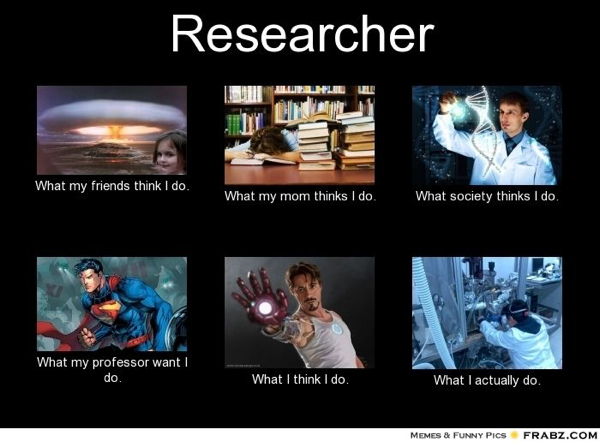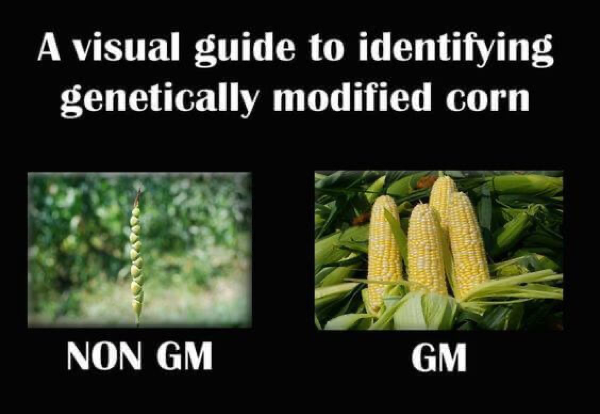Memes are not a joking matter
“It is quite hard to practice science without a solid sense of humor,” says Crastina writer Ayshan Aliyeva who explains why it became “inevitable that science would creep into the meme culture”. This Crastina Column initiates our new theme Science Humour.

Imagine how boring our world would be if suddenly we lost the ability to share a little laugh.
Dull mundane reality would slowly creep on us. Facial muscles would sink leaving our mouths as rainbows without pots of gold at their ends. Humor twirls in our world in many forms: from dad jokes to elaborate Stand Up Comedy. Among these unbeatable titans, one style is particularly beloved by anyone with internet access: a meme.
Essentially an image accompanied by text, a meme is funny, witty and easy to grasp. In the times of piling information and diminishing attention spans, memes are a fresh breeze for humor because of their simplicity. But what does anything as simple have to do with serious business of science? Ironically, little do meme lovers know that the term “meme” was actually coined by none other than Richard Dawkins in his famous book the “Selfish Gene.”
Science is indeed a complicated matter. It is tinkered by many men and women working days and nights, floating around in white lab coats like little clouds on a sunny day, scribbling on gigantic boards and shouting “Eureka” every now and then. In this busy schedule there must be no time for laughter and giggles, right?
Absolutely and utterly wrong.
 As said by Edwin Kilbourne in his book Humor in Science, “…the practitioners of science (scientists) are funny. They are grown men and women who go to work in clothes more suitable for the Appalachian trail than the halls of Academia. They probe the esoteric with a zeal most men reserve for sex and religion. They speak in strange tongues and write (often badly) in passive voice. They walk in green pastures and measure chlorophyll. They hear in the songs of birds the workings of the telecephalon and see trigonometry in the stars.”
As said by Edwin Kilbourne in his book Humor in Science, “…the practitioners of science (scientists) are funny. They are grown men and women who go to work in clothes more suitable for the Appalachian trail than the halls of Academia. They probe the esoteric with a zeal most men reserve for sex and religion. They speak in strange tongues and write (often badly) in passive voice. They walk in green pastures and measure chlorophyll. They hear in the songs of birds the workings of the telecephalon and see trigonometry in the stars.”
Jokes aside, it is quite hard to practice science without a solid sense of humor. In the field filled with eye-twitching failures and heartbreaking rejections, sometimes only a shrug and a laugh can keep people going. Therefore, it was inevitable that science would creep into the meme culture.

Nowadays, science memes are hanging around labs and institutes cracking up devasted researches that cannot publish yet another paper. However, science memes together with the larger scope of humor in science play a grander role than being a distraction from mundane problems.
We live in the times where science is approached with caution. There is an ever-growing pit between science and the community infested with crocodiles of dubious claims. Therefore, finding ways to close this gap of distrust between the scientific community and society is of utmost importance. In this battle, humor is the best tool we can use for several reasons.
Somewhere along the way science with its morally complex questions like genetic engineering and artificial intelligence became associated with chilling sci-fi horrors and corrupt industries. But most of the scientists are not evil geniuses eager to wipe out the human race, but down to earth (well, most of the time …) people trying hard to explain one small phenomenon of the world. These nasty associations can be reversed with a sprinkle of light-hearted humor in science communicationbecause no matter how complex and technical scientific research is, it is in the end just a gigantic jigsaw puzzle that is taking forever to complete. And let’s be real – puzzle nights with friends can be quite fun until one piece goes missing and everyone starts blaming each other.
Secondly, no one likes to be talked down to – complic ated terms only make scientists sound snobbish. Big words are the last thing we need in an already complex setting of existence. On the contrary, we all need a good laugh in the turmoil of modern times. In that case, why not spice up science with some good old jokes? There are many accessible ways to employ humor in science, including Stand Up comedy, one-liners, sci-fi pieces (a brilliant example would be my all-time favorite “Hitchhiker’s Guide to the Galaxy” by Douglas Adams). While memes might not convey much information in them, they can be used as satire or to draw attention to a certain topic, inviting the reader for further investigation.
ated terms only make scientists sound snobbish. Big words are the last thing we need in an already complex setting of existence. On the contrary, we all need a good laugh in the turmoil of modern times. In that case, why not spice up science with some good old jokes? There are many accessible ways to employ humor in science, including Stand Up comedy, one-liners, sci-fi pieces (a brilliant example would be my all-time favorite “Hitchhiker’s Guide to the Galaxy” by Douglas Adams). While memes might not convey much information in them, they can be used as satire or to draw attention to a certain topic, inviting the reader for further investigation.
https://www.ohmycat.club/food-scientist-memes.html
Lastly, humor has a very peculiar effect on learning. Thinking back to the times when we were sitting in a classroom, bored to death and barely listening, we can recall that many teachers had a trick up their sleeve to win students back – they planted an often-not-even-funny joke, that somehow hit home and brought everyone’s attention back. This phenomenon was researched and according to a study “Humor in Eye Tracker” our brains are biased in taking in the humorous information more easily than non-humorous one. A related study, this time on the effects of humor on memory formation, found that “Humor enhanced memory and information retention” along with being a natural stress-reducer.

Ultimately, conveying science with casual, non-imposing methods can be pleasant for both the researcher and the listener. After all we are all in search for the answers to many compelling questions of life. Looking at science on a larger scale, we can observe the irony of the field itself: we, Homo sapiens, not better than million other species glued by gravity to one of the millions of rocks perpetually turning around one mediocre star, attempt to understand the grandiose universe around us by employing our only slightly well-evolved brains. In the end, joke’s on us.

More reading
”Science Humour”
– the Crastina theme, early spring 2020.
The Science Comedy list

One of its kind – feel free to suggest more names!
Current articles


• Gene nomeclature: Humor vs reality check (Essay by Ayshan Aliyeva)

• Sam Gregson, Bad Boy of Science: “Comedy helps to bridge the gap
From the Crastina archives
• Girls in STEM: brain, farts, and a female science comedian
An interview with Sophie Shrand by Julia Turan.


